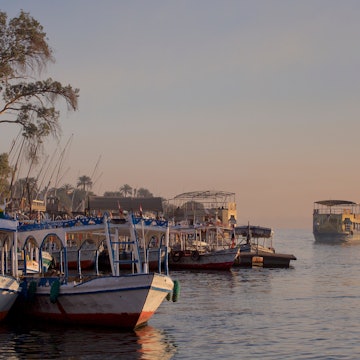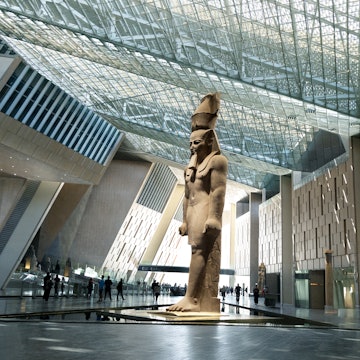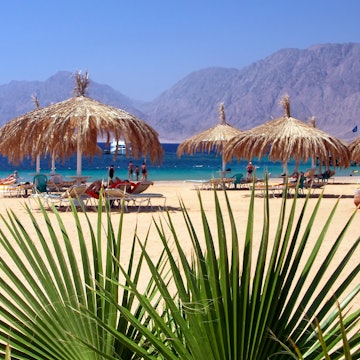

A boat on the Red Sea, Egypt. Anton Petrus/Getty Images
Some 96% of Egypt is desert, so perhaps it’s no surprise that life here gravitates toward the water. Egypt's most famous body of water is obviously the Nile River, but the Red Sea along its eastern coast is vying for a slice of the spotlight. The snorkeling and scuba sites around Hurghada, Marsa Alam, Sharm El Sheikh and Dahab are world-class, and the Red Sea is an incredible spot to get your diving certification. Back on land, the coastal cities are getting ever more cultural, while further into the desert, you can discover important Coptic Christian monasteries.
Packed with package-holiday resorts, fly-and-flop beach bums and buffets, this region is one that independent travelers love to hate, but if that’s not your scene, it’s easily escapable if you know where to look. Ready to dive in? Here are the best things to do on Egypt’s Red Sea coast, from Dahab on the Sinai Peninsula to tiny Marsa Alam close to the Sudan border.
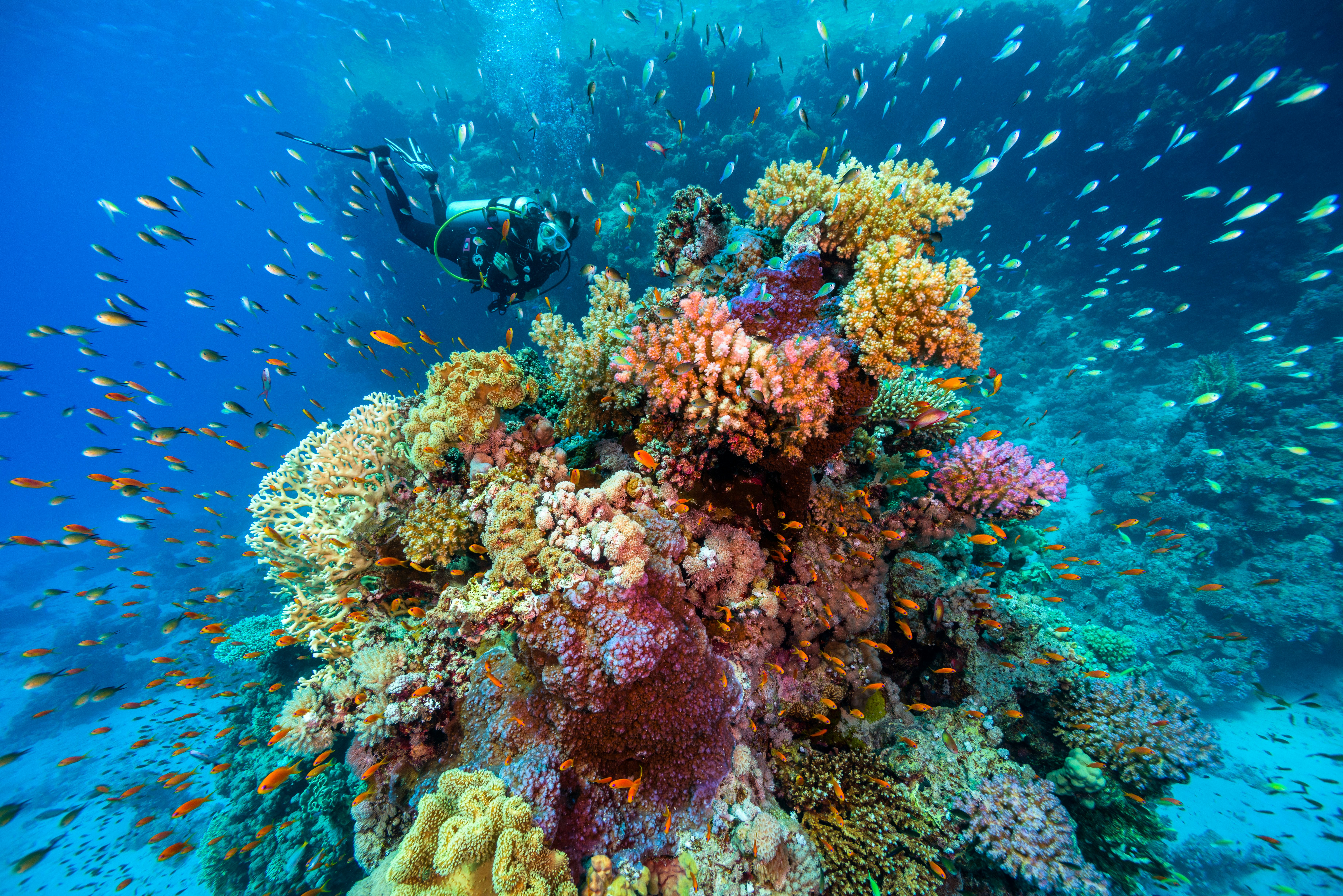
1. Learn to scuba dive among climate change-defying coral reefs
Egypt’s phenomenal Red Sea dive sites are what put this region on the map for travelers originally, and it’s still the biggest draw. The Red Sea’s colorful coral reefs, already bathed in warmer, saltier waters than what’s found in the open ocean, are bucking the trend of dying reefs elsewhere on the planet and might be the world’s last coral survivors.
Even if you’re not sure whether scuba diving is for you, the Red Sea is a stunning place to try it out, opening up an underwater world that will blow your mind. Every Red Sea resort worth its salt has a scuba diving center, and many of them offer taster sessions for the coral curious. Our favorite dive centers in Egypt include Marsa Nakari near Marsa Alam, Jasmin Diving Sports Center in Hurghada, Reef Oasis in Sharm El Sheikh and Red Sea Relax in Dahab. All have patient, top-notch instructors and beautiful house reefs.
Planning tip: If you’re sure you want to learn to scuba dive, save your precious vacation time and complete the coursework and pool sessions in your hometown before traveling to Egypt.
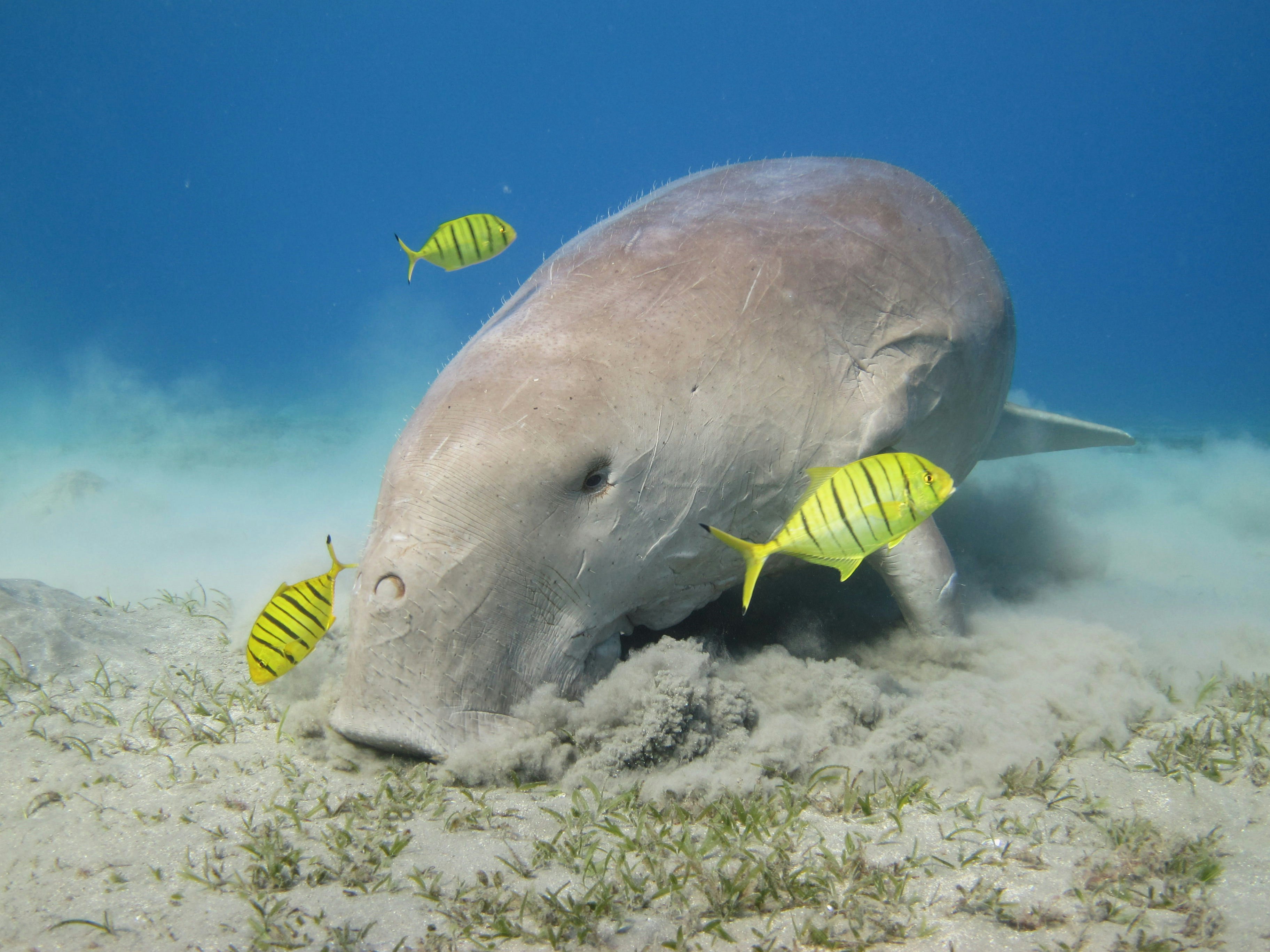
2. Turn the Red Sea green in Marsa Alam
As one of the best places to scuba dive in the Middle East – and in the world – the Red Sea is an incredible environment worth protecting, though the difficult political climate – and the actual climate – have made preserving this vulnerable area challenging. Scuba divers can make a difference by staying at one of Red Sea Diving Safari’s three properties near Marsa Alam. One of the world’s first Eco Dive Centers certified by PADI (the Professional Association of Diving Instructors), Red Sea Diving Safari has made sustainability a key feature of its business, from running on solar power to offering a free Dive Against Debris course, training divers to remove trash from coral reefs and to log what they find on a centralized database that’s used by environmental groups to advocate for governmental change.
The Red Sea Project, an Egypt-based environmental NGO, also recruits citizen scientists to document sightings of sea turtles and dugongs, along with a dozen more regenerative tourism initiatives.
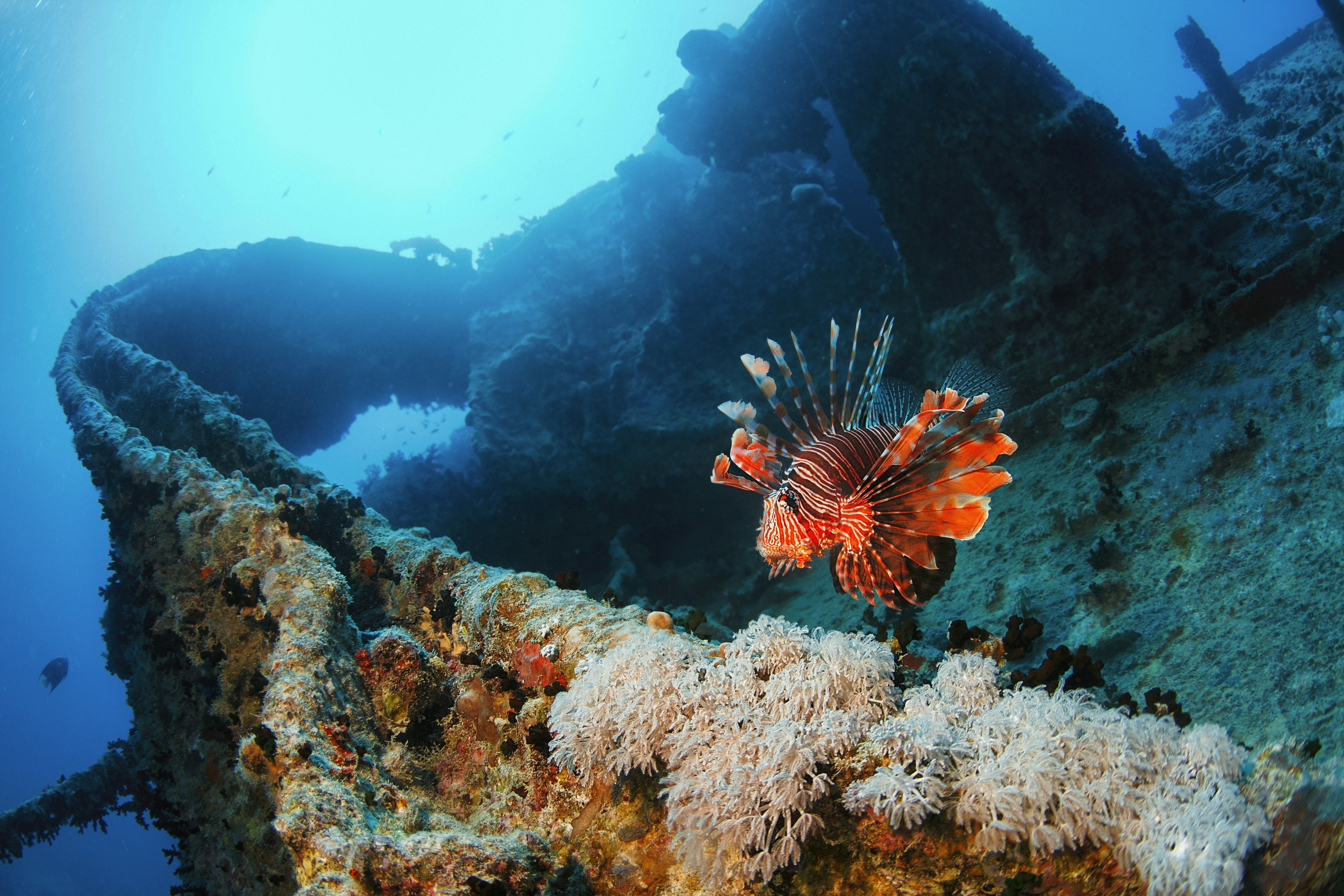
3. Dive the Red Sea’s best wrecks and reefs
With an average depth of just 79m (260ft), the Gulf of Suez is surprisingly shallow, which has had unfortunate consequences for some historic carriers that now lie on the seabed. The most famous shipwreck here is the Thistlegorm, one of the top wreck dives on the planet. This 126m-long (415ft) British cargo ship was carrying supplies to restock the British army during WWII when it was bombed by German aircraft and sank. Resting far below the surface is its cargo of armaments and vehicles, including Bren gun carriers, motorbikes, Bedford trucks and Jeeps. On the other side of Sinai, near Dahab, the Blue Hole has a fearsome reputation. This gaping sinkhole drops 130m (427ft) and has seen several fatal accidents. A sobering wall of memorial plaques at the entrance to the site remembers divers who have lost their lives here, but it is safe for those who don't push their limits.
From Hurghada, the Giftun Islands are part of a marine reserve that’s filled with an abundance of fish and other sea critters. Further south, Marsa Alam has long been Egypt’s in-the-know diving destination, and a 20-minute boat ride from shore delivers divers to the famous Elphinstone, where a rainbow of reefs lures in schools of fish. Heading out on a liveaboard from Marsa Alam allows you access to far-from-the-crowds dive sites, such as the Brothers, that show off the best of the Red Sea’s big pelagic action and even more coral-covered shipwrecks.
Planning tip: Most of these sites are for experienced divers only, though others, like the Blue Hole, are open to snorkelers, too. Dive centers in Sharm El Sheikh make day trips to the Thistlegorm and other wrecks, but it's a long journey. For more time at the sites and a quieter experience, book a liveaboard.
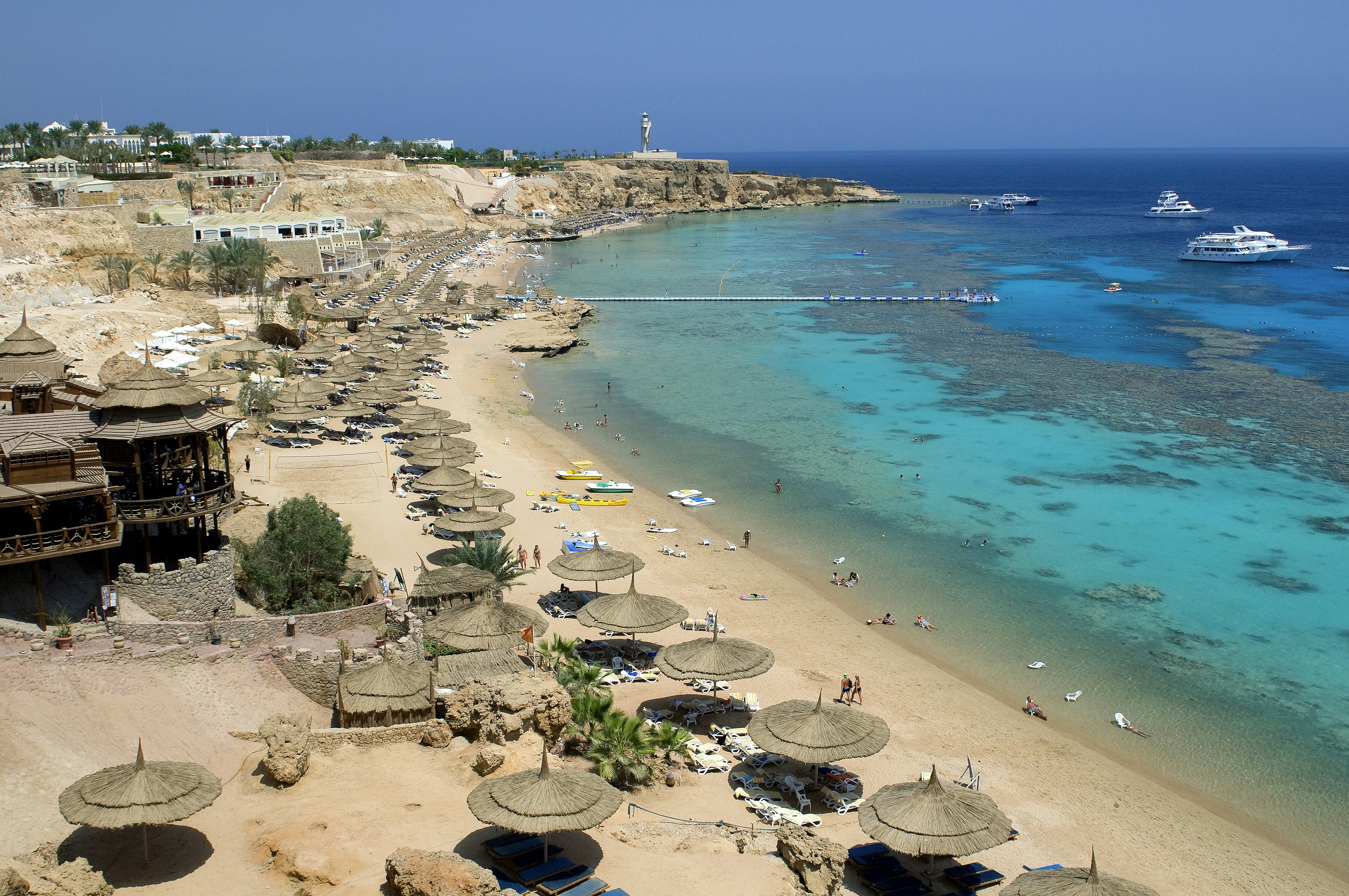
4. Strap on a snorkel in Sharm El Sheikh and beyond
You don't have to get scuba certified to enjoy the underwater aquarium in the Red Sea. With just a mask and snorkel, you can visit many of the excellent shallower sites around Sharm El Sheikh, Hurghada and Dahab and see the colorful marine jungle and all the beautiful creatures that call it home. Many spots along the coast have vertical wall reefs, so flora and fauna abound even near the surface. Top snorkeling spots include the Gardens (Near Garden, Middle Garden and Far Garden) in Sharm and Gota Abu Ramada and Umm Qamar near Hurghada.
Planning tip: Some snorkeling sites can be accessed from the beach, while others are best visited by boat. Many dive centers, resorts and hotels run boat trips for snorkelers, either in combination with groups of divers or in smaller rigid-inflatable boats for snorkelers only. Be mindful that some sites can have strong currents.
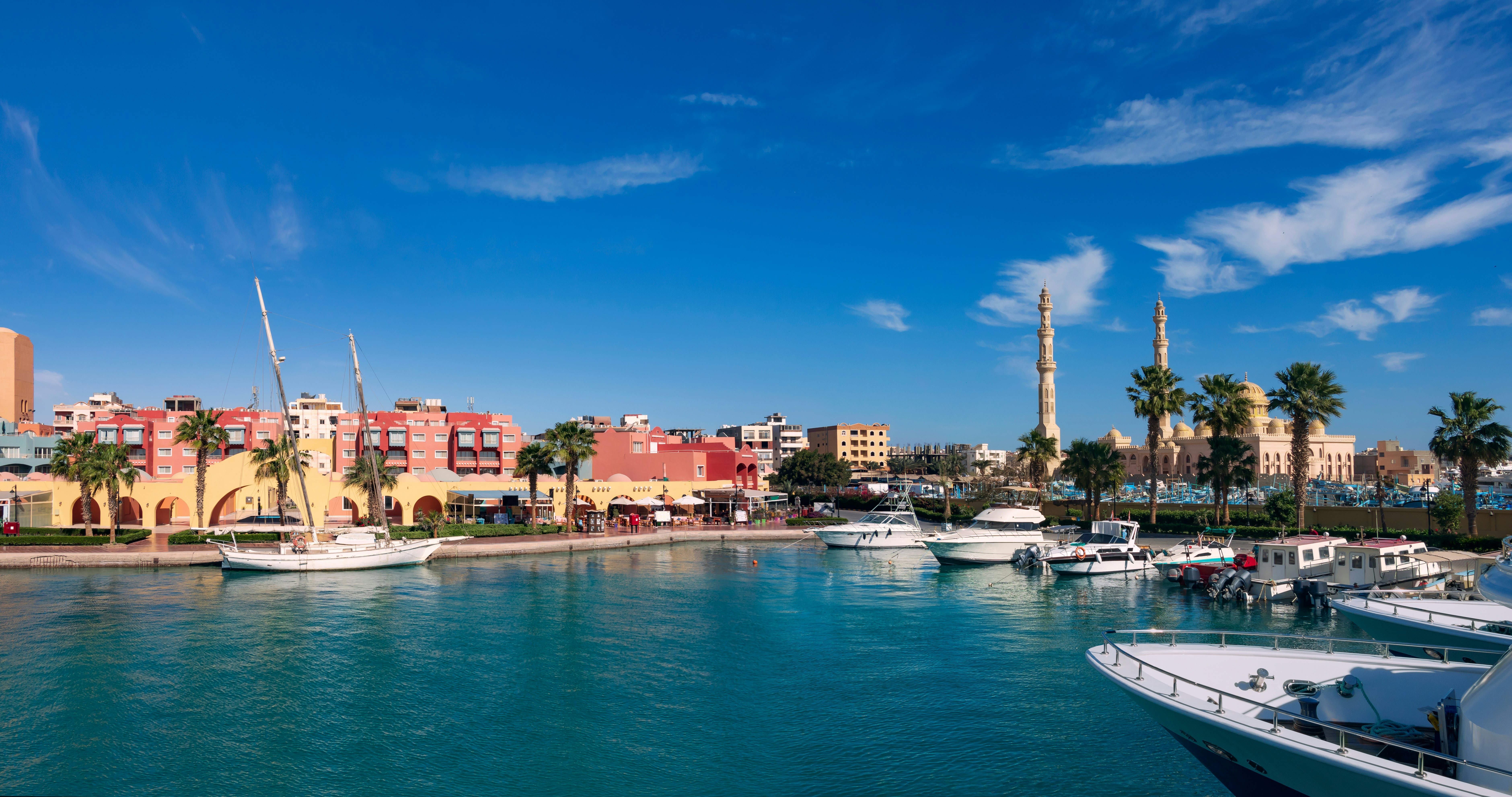
5. Explore the Red Sea cities of Sharm El Sheikh and Hurghada
Budget airlines from Europe and Cairo frequently land in Sharm El Sheikh and Hurghada, making them the obvious first ports of call for travelers. While neither has the historic or cultural cache of Cairo or Luxor, they do have some interesting diversions if you’d like a break from sand, sea and sun.
Opened in 2020, the small Hurghada Museum has just enough ancient artifacts to whet your appetite but not so many that you’ll feel overwhelmed. Its collection also moves the timeline closer to the present day, with Coptic religious pieces and 19th-century jewelry. The Sharm El Sheikh Museum also started welcoming visitors in 2020, and it’s the only antiquities museum on the Sinai Peninsula.
Both cities also have impressive mosques – Al Sahaba in Sharm and the Grand Mosque in Hurghada – that are lit up beautifully at night. Surrounding them both are markets and restaurants, so don’t miss the chance to try to catch of the day from Hurghada’s Halaka Fish Market or Fares Seafood, a Sharm institution. Pick your poisson from the selection on ice.
Planning tip: If you’re visiting the rest of Egypt, it’s often cheaper to fly into one of the Red Sea resort towns and then get an internal flight or bus to Cairo or Luxor. Most travelers require visas to visit Egypt (US$25), but if you’re staying in the resort towns in Sinai only, you can get a free Sinai-only visa at the airport in Sharm El Sheikh. Note that this visa does not give you access to Ras Mohammed National Park.

6. Go kitesurfing or windsurfing
Egypt’s Red Sea coast dips and curves, creating protected bays with flat water but a stiff breeze and wind-sculpted rocky headlands that appeal to kitesurfers of all levels. Guarded by a hook-like tongue of sand, Dahab's Blue Lagoon is a prime spot for learning to windsurf and kitesurf, one of the best things to do in Egypt. It's sheltered from waves, but the wind blows consistently from the north, especially during the warmer months. A handful of schools line the bay for beginners to get started.
Further south on the Egyptian mainland, El Gouna offers year-round kitesurfing, while Safaga is a prime spot for windsurfing. Kite Village Hamata is the biggest one-stop shop in all of Egypt for this activity. On windy days, dozens of kites color the sky.
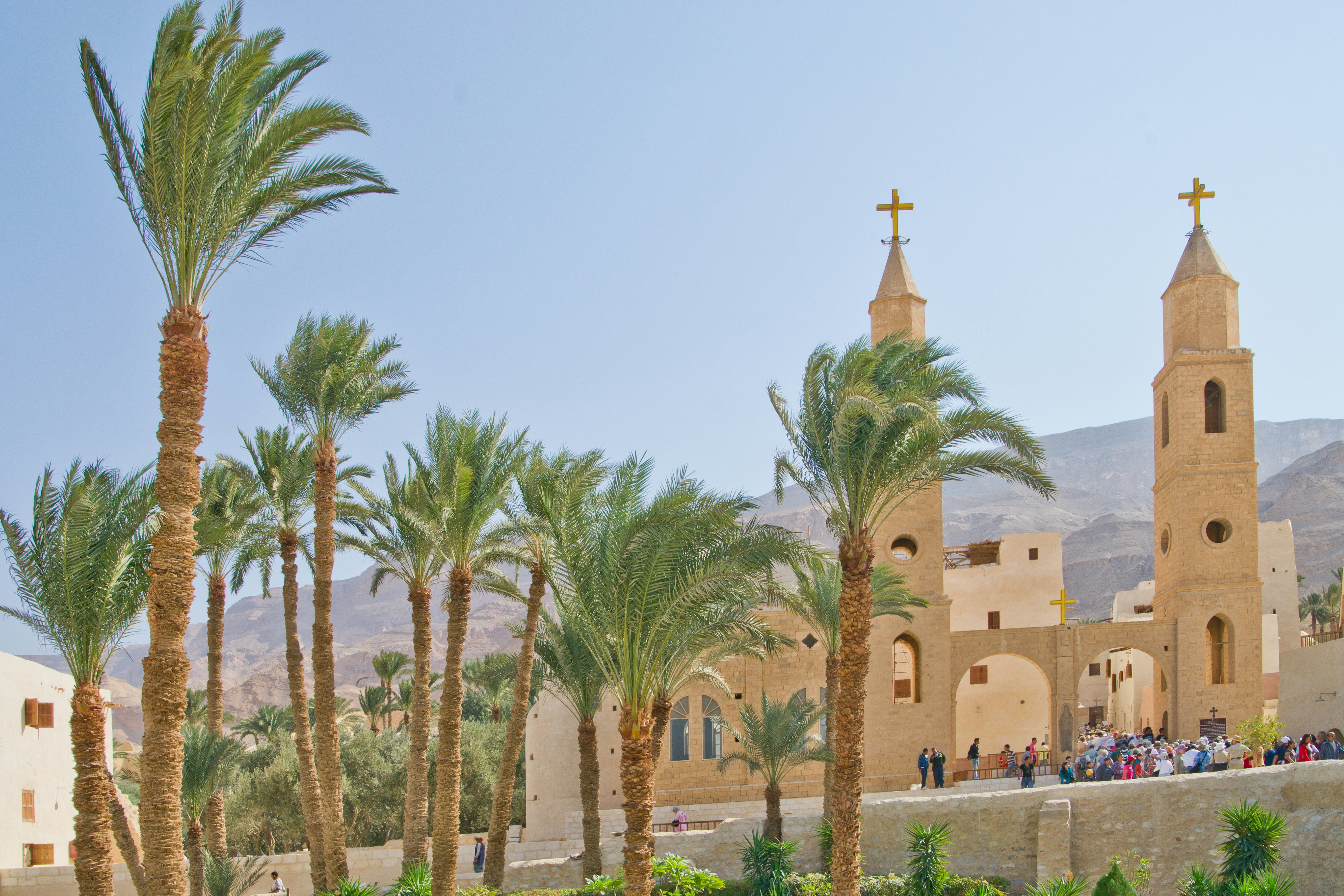
7. Visit Coptic monasteries
The sun and sea are big distractions, but the Red Sea region has a deep Christian history that shouldn’t be overlooked. In the remote Eastern Desert, craggy cliffs hide the birthplace of Christianity’s monastic traditions, and they are still major places of pilgrimage for Coptic Christians today. The 4th-century Monastery of St Paul is constructed around the saint’s hermitage and remains blissfully isolated. Visitors can check out several areas of the still-active monastery, including the beautifully painted chapel and the original refectory. Monks also lead tours of the Monastery of St Anthony, a treat for art lovers thanks to its significant collection of Coptic wall paintings.
In the interior of Sinai, St Catherine’s Monastery contains what’s believed to be the burning bush from which God spoke to Moses. Today, St Catherine’s is considered the oldest continually functioning monastic community in the world. A popular way to visit is by climbing Mt Sinai (locally known as Gebel Musa, Mt Moses), for sunrise and then returning to the monastery for its opening at 9am.
Planning tip: Hotels and travel agencies in Hurghada and El Gouna can organize day trips to visit the monasteries of St Paul and St Anthony, and accommodations and agencies do the same for St Catherine’s from Sharm and Dahab. For the most memorable experience, arrange a trip with Wilderness Ventures Egypt. A delightful Bedouin guide takes you to Elijah’s Basin and sets up camp, where you might be the only visitor enjoying delicious meals and tales around the fire before heading to the summit the next morning.
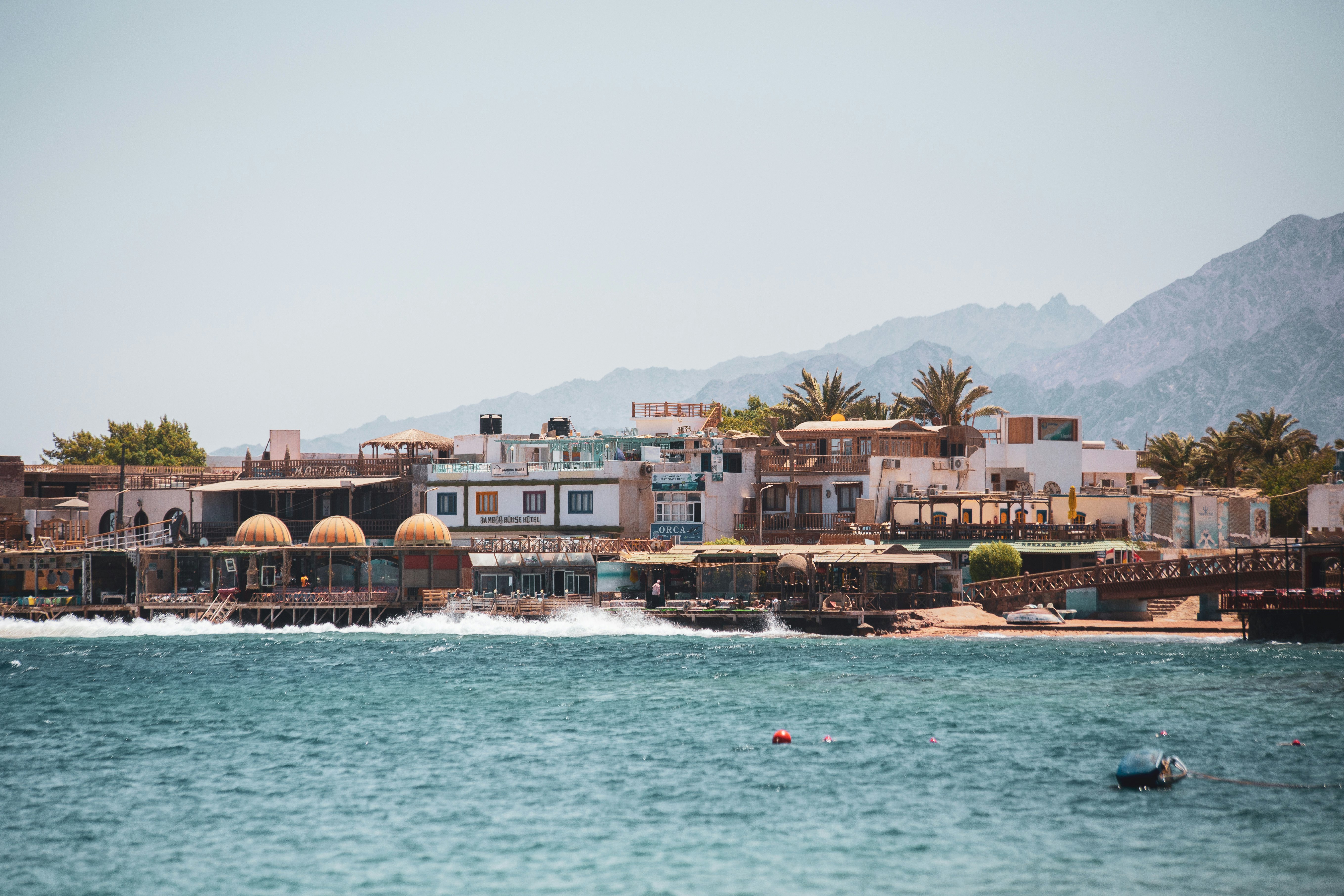
8. Chill out at a cafe in Dahab
Dahab has a boho allure unlike any other town in Egypt. The tourist hassle that’s so pronounced elsewhere in the country fades significantly, and it's easy for travelers to take a deep breath and relax into its groove. Its beachy location and laid-back attitude have made Dahab a draw for digital nomads, but you certainly don’t have to be lugging your laptop around to enjoy the bayside cafes covered in colorful rugs. Some of our favorites include Schoenemanns Cafe, Flat White and Everyday Cafe.
Planning tip: If you can’t make it to Dahab, Farsha Mountain Lounge is Sharm’s coolest cafe. A jumble of knick-knacks surrounds low seating at precariously perched intervals alongside a cliff tumbling down to the sea.
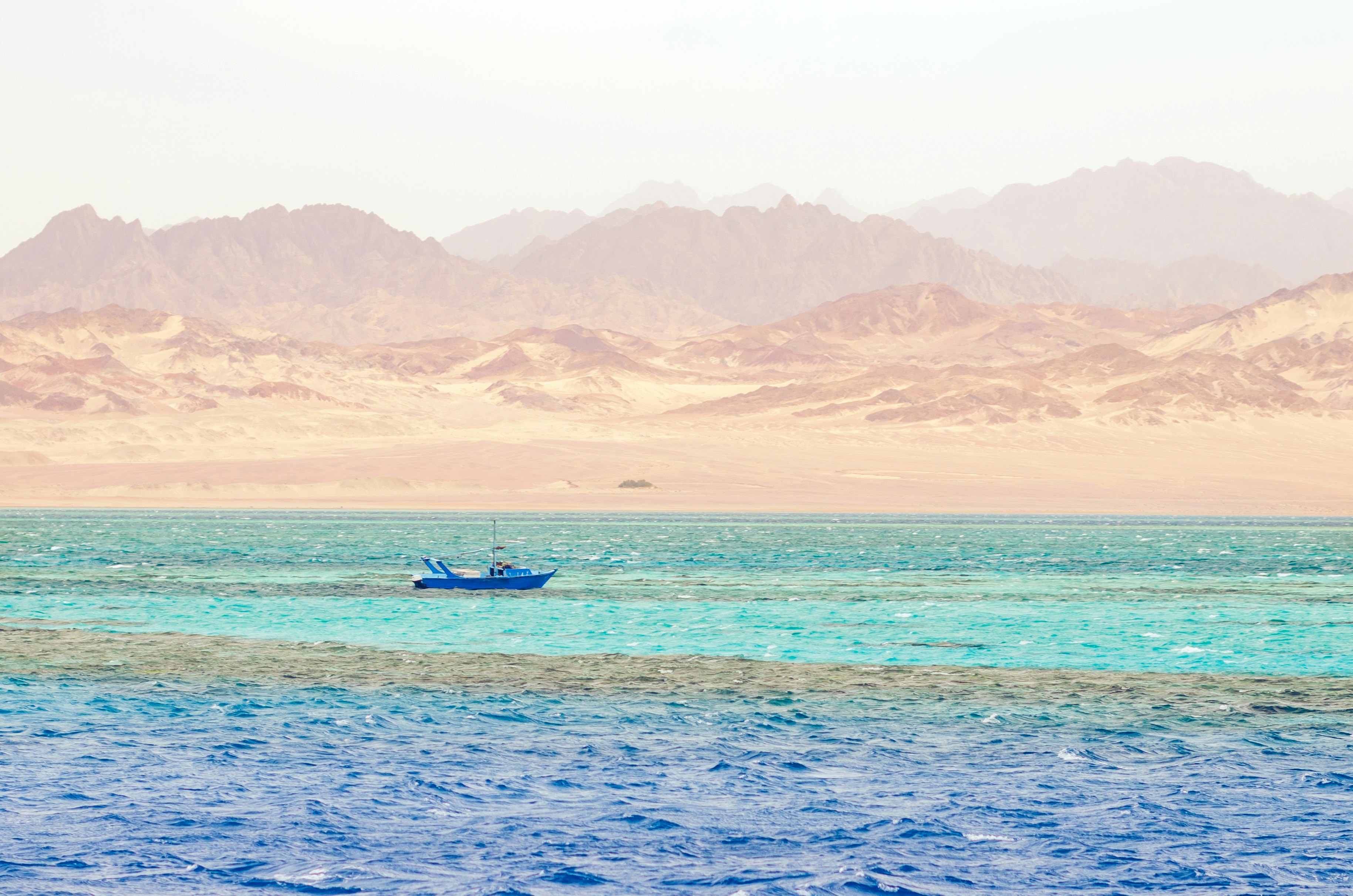
9. Discover treasures above and below the water in Ras Mohammed National Park
One of the world’s most spectacular marine ecosystems, the Red Sea is essentially a huge underwater rainforest that's home to more than 250 species of coral, 8% of which are found nowhere else in the world. Most, if not all, of the 1200-some species of fish can be seen in the waters of Ras Mohammed National Park, including sought-after pelagics, such as hammerheads, manta rays and whale sharks. This national park has seven incredible dive sites, some of which are also accessible for snorkelers.
Ras Mohammed National Park is visited almost exclusively by day-trippers from Sharm or Dahab, but staying overnight is a soul-soothing experience. Eco-minded Bedawi has set up camp with canvas tents, a composting toilet and a communal Bedouin-style space right on the beach, and it can also arrange scuba diving and tours of the park's land-based sights.
Planning tip: Not all dive sites at Ras Mohammed National Park are visited daily, so if you have your heart set on one, get in touch with dive centers in advance to see when and how often excursions take place. Trips sometimes get canceled because of high winds or other weather factors.
10. Skip the resorts and stay in smaller locally-run accommodations
The Red Sea coast packs in resorts like sardines, but it’s possible to have a more local accommodation experience. In Sharm El Sheikh, try Bedouin-owned Umbi Sharks Bay Diving Village – you don’t have to be a diver to stay at this laid-back local spot.
Generally, Dahab and Nuweiba are better alternatives to Sharm. Run by a Swiss-Egyptian family, Dar Dahab is a chic beachfront guesthouse with a gorgeous interior, or if you prefer a few days in the set back from the sea, Malakot Mountain Oasis runs an ecolodge in scenic Wadi Gnai, with delicious Bedouin food and a sweat lodge. Near Nuweiba, Basata is one of Egypt's eco-accommodation pioneers with a strict sustainability ethos. Travelers gather around communal tables to meet fellow guests and dig into meals heavy with organic produce and ethically sourced fish. It's the only place we've come across in Egypt with discounted rates for solo female travelers.









